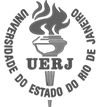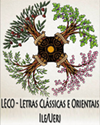A “GOTA D’ÁGUA” DE MEDEIA: UMA ANÁLISE DA REINTERPRETAÇÃO CONTEMPORÂNEA DO MITO POR MEIO DE CHICO BUARQUE E PAULO PONTES
DOI:
https://doi.org/10.12957/principia.2023.87916Palavras-chave:
tragédia, Medeia, mito, literaturaResumo
O mito, como forma fundamental de compartilhar conhecimento e entender as relações humanas, desempenhou um papel central nas sociedades antigas, fornecendo explicações para fenômenos naturais, origens e comportamentos humanos. Por outro lado, a literatura, ao surgir como uma forma de arte e expressão, trouxe consigo a capacidade de criar mundos ficcionais, explorar a complexidade das emoções humanas e questionar as verdades estabelecidas. Ambas as formas de reconhecer o mundo não podem ser vistas como mentira ou verdade, mas sim como pontos de vista pertencentes ao seu próprio tempo. Nesse sentido, analisa-se a obra literária “Gota d'água” (1975), de Chico Buarque e Paulo Pontes, reinterpretação contemporânea do mito de Medeia, personagem da tragédia grega escrita por Eurípedes, de forma a demonstrar como o mito continua relevante e passível de ser adaptado para diferentes contextos e épocas – evidenciando a atemporalidade e a universalidade de suas temáticas –, e como ele, por meio da literatura, possibilita uma nova perspectiva sobre a história, explorando, na obra em estudo, questões sociais e políticas pertinentes à realidade brasileira.
Downloads
Publicado
Como Citar
Edição
Seção
Licença
Copyright (c) 2024 Letícia Rodrigues Coelho da Silva Marques

Este trabalho está licenciado sob uma licença Creative Commons Attribution-NonCommercial 4.0 International License.
AUTORIZAÇÃO
A Principia está autorizada a publicar o artigo ora submetido, caso seja aceito para publicação online. Fica atestado que a contribuição é original, que não está sendo submetida a outro editor para publicação, e que a presente declaração é a expressão da verdade.
Nosso periódico utiliza a licença do Creative Commons (CC) CC Attribution 4.0, preservando dessa forma, a integridade dos textos em ambiente de acesso aberto. Assim, autores que publicam nesta revista concordam com os seguintes termos:
1- Autores mantêm os direitos autorais e concedem à revista o direito de primeira publicação, sendo esta licenciada sob a Creative Commons Attribution License 4.0 Internacional.
2- Autores têm permissão e são estimulados a publicar e compartilhar o trabalho com reconhecimento da publicação inicial nesta revista.
3- Autores dos trabalhos aprovados autorizam a revista a ceder o conteúdo de seus trabalhos, após sua publicação, para reprodução em indexadores de conteúdo, bibliotecas virtuais e similares.
Para mais informações sobre a Creative Commons Attribution 4.0 International License, acessar: https://creativecommons.org/licenses/by/4.0/

A Principia utiliza uma Licença Creative Commons - Atribuição-NãoComercial 4.0 Internacional.







